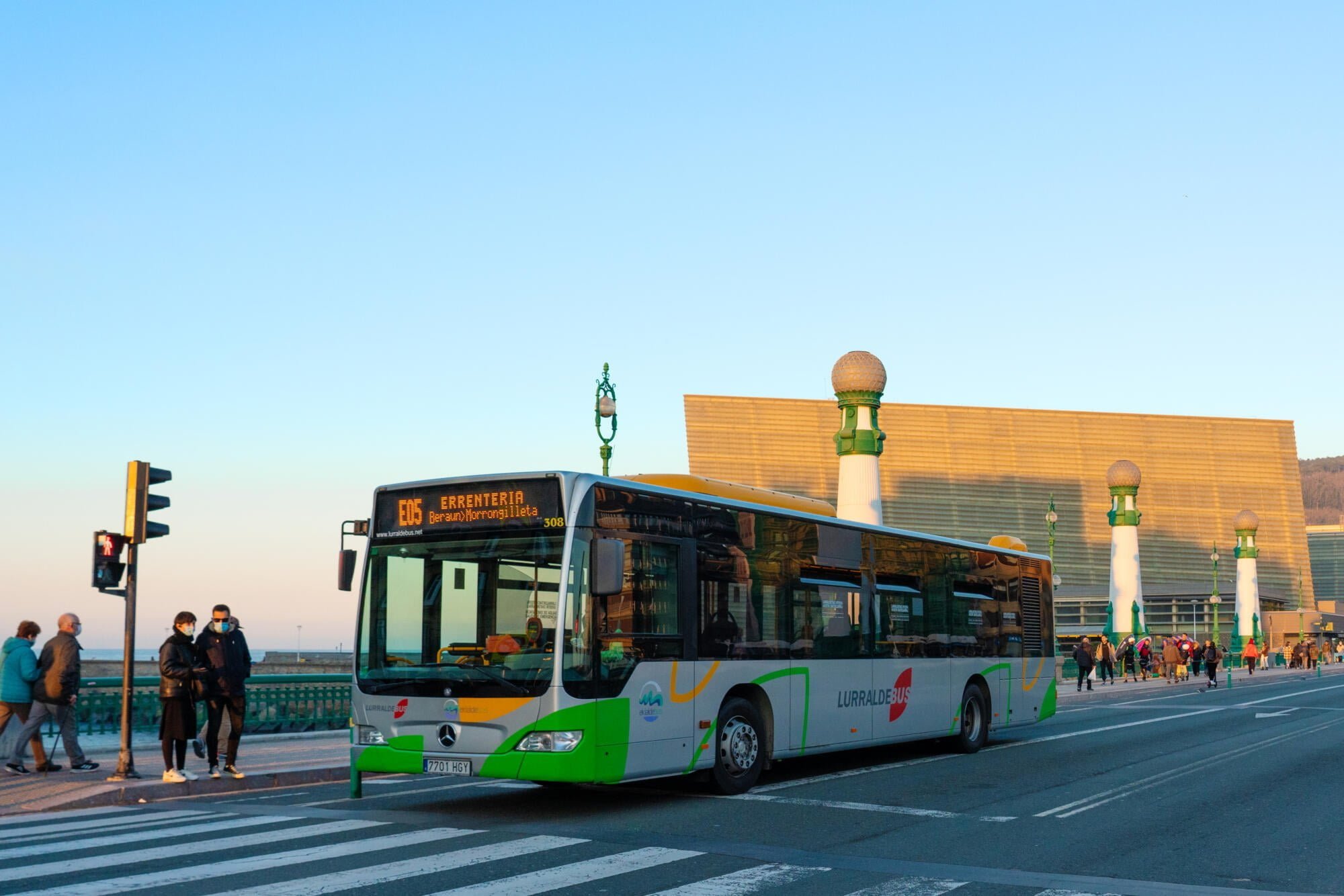Gipuzkoa, for the people
Determined to pave the way towards a more connected and equal society through smart public transport solutions, the Spanish province of Gipuzkoa is keeping apace with new transport technologies.
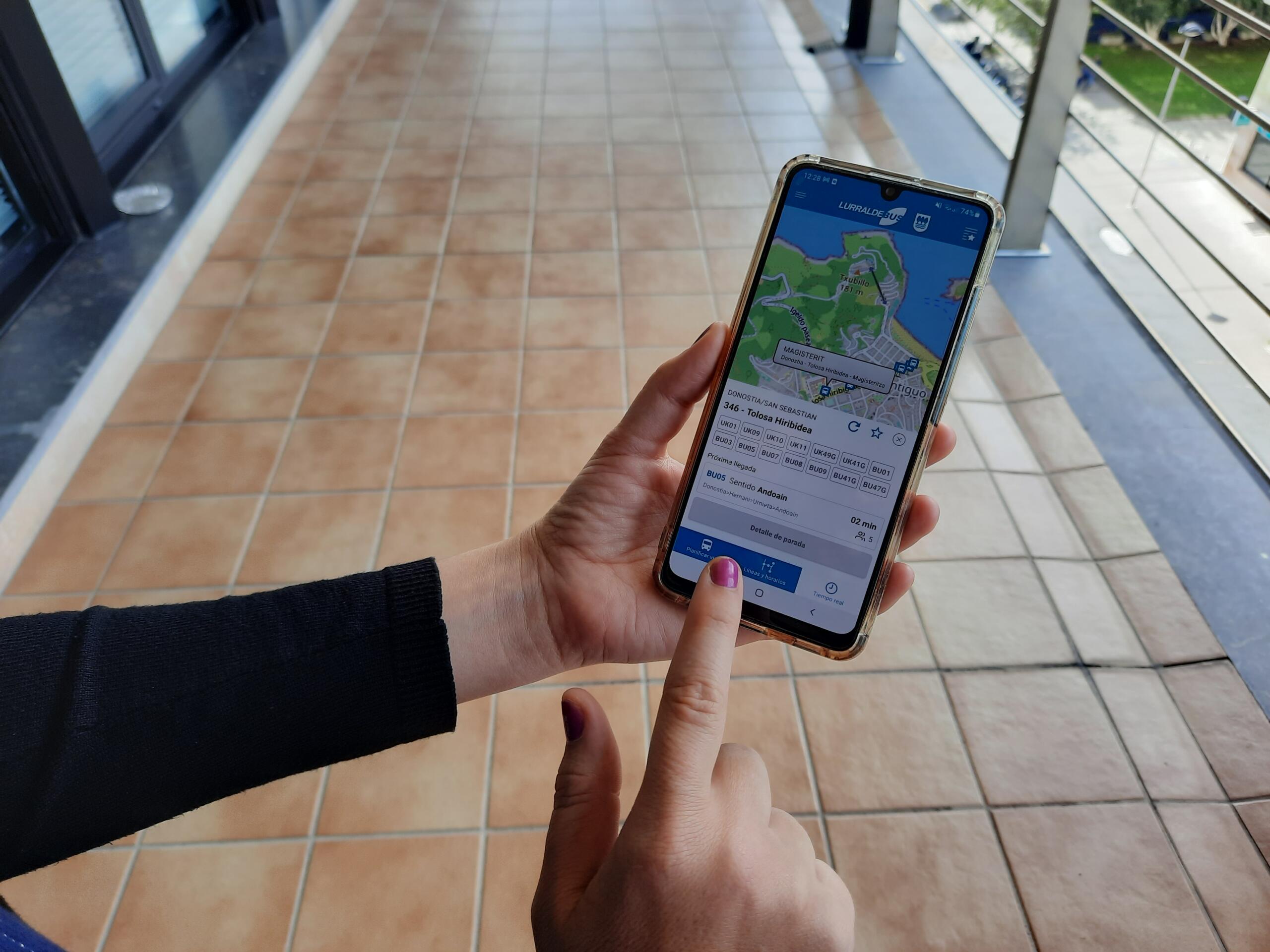
Apps' usage is at an all time high.
Credit: Mobility Department of the Gipuzkoa Provincial Council
Urban mobility is undergoing a major transformation. While European cities and regions are making great efforts to keep up with the newest solutions and ensure the transition to more sustainable transport systems, they need to make sure that, first and foremost, no one is left behind.
Gipuzkoa, a small and daring Basque province located in the north of Spain, is well aware of and committed to the challenge. The province aims to be a strategic ally of development for its various cities, focusing on safety, smartness, and access. It does so by developing services adapted to every citizen, employing a modern and connected interurban public transport network.
To successfully achieve its objectives, the Gipuzkoa Provincial Council's Department of Territorial Planning and Mobility has taken specific action to increase the inclusivity of Lurraldebus (the Council's interurban bus network). How? With smart solutions!
Since April 2022, several Lurraldebus routes have made it possible for all those buying tickets online to switch to electronic-format tickets and waive the need to print them – a decision very well received by increasingly sustainability-aware users. Moreover, the use of applications has experienced exponential growth in recent years, enabling passengers to buy tickets at any location and time and thus improving accessibility by providing a safer and more accessible alternative for the users. This is also the case with Lurticket, an app that facilitates payment by credit card or mobile phone for interurban transport on the entire network and Lurraldebus routes.
These are slight yet meaningful improvements increasingly demanded by the users that, when materialised, are appreciated and highly helpful in assisting public transport workers with their day-to-day management. This is also the case of MUGI, a multimodal transport card created with the very diverse general public needs in mind.
Focusing on smart connected transport has the potential to change the way people live, move, and interact with mass-transit transport systems.
- Rafaela Romero Pozo, Deputy for Mobility and Urban Planning at Gipuzkoa Provincial Council
The MUGI card
The MUGI card arose in 2013 from a consensus among the members of the Gipuzkoa Territorial Transport Authority (GGLA-ATTG), the body establishing joint transport policies in Gipuzkoa.
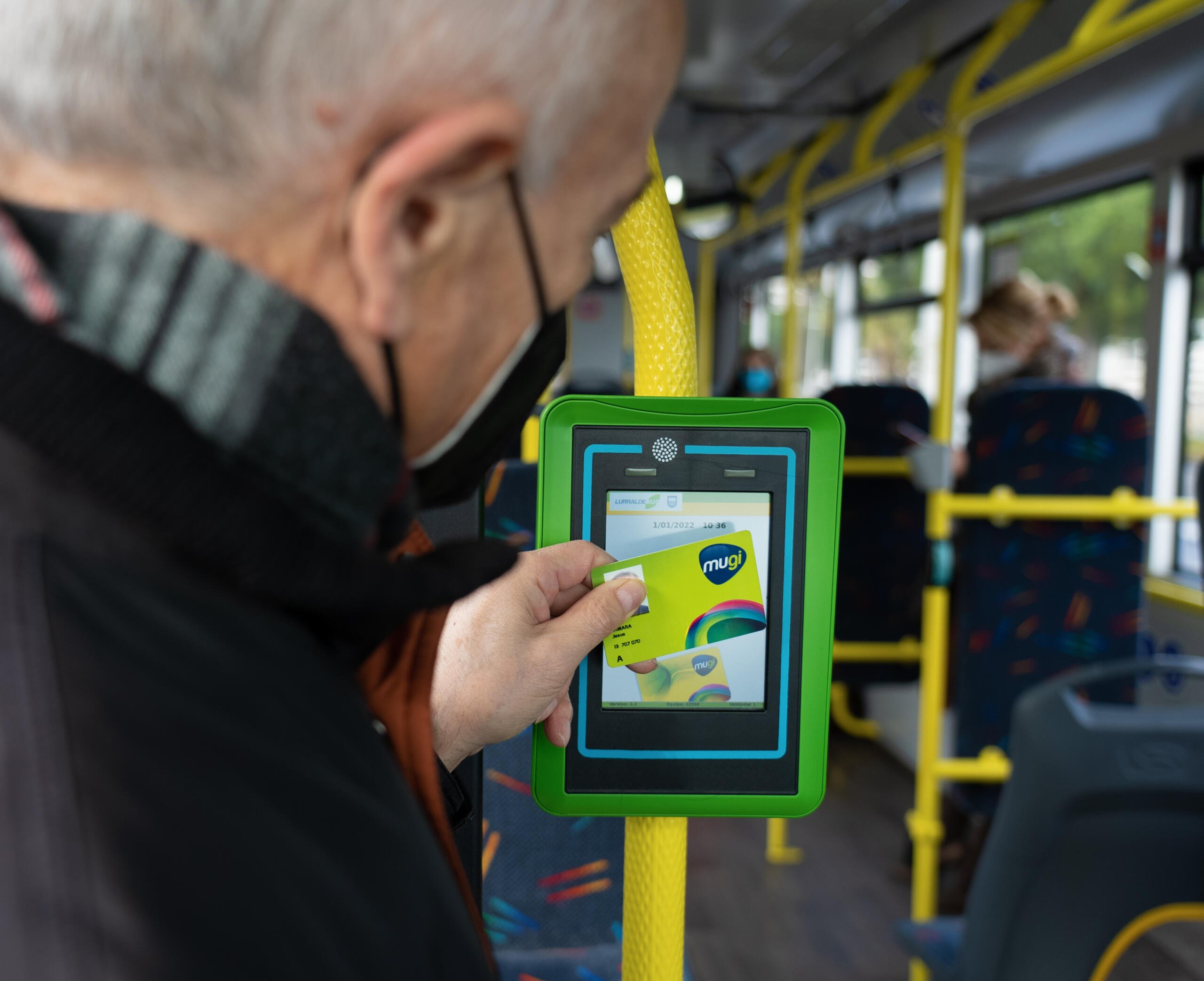
The MUGI card aims to encourage citizens to use public transport. Credit: Mobility Department of the Gipuzkoa Provincial Council
It represents an integrated ticketing system on the move, devised by and for the citizens. Its goal? To help and encourage them to use public transport!
This system offers significant advantages to frequent users of public transport, in the form of:
- A single payment system: The same card can be used throughout the entire public transport system.
- Common fares and zoning: The same journey always costs the same amount, whatever form of transport is used. The zoning system is the basis of all the fares applied.
- Discounts for frequent use: The more the cardholder uses public transport, the cheaper each journey becomes.
- Special rates for connections: Free connections between routes run by the same company and discounts for connections between routes run by different operators.
- Extra credit for members of reduced fare groups: seniors, young people, people with disabilities, etc.
The card, created with equality and social justice as the main drivers in mind, has faced multiple challenges during its almost ten years of existence, associated with the increasingly connected nature of our society. Therefore, a smarter, more comprehensive approach was needed; in comes the virtual MUGI system.
The virtual MUGI system
On this premise, Gipuzkoa has taken action to extend the ticketing system alternatives and put the focus on users and their needs, providing users with access to the new Virtual MUGI system.
This new system allows mobile payments, dismissing the need to carry the actual, material card around with us; this represents a step forward in adding value to the card, which will now also provide access to valuable information for users on their mobile phones.
Indeed, the implementation of the Virtual MUGI system will be a turning point that will mark the future of public transport in Gipuzkoa, moving forward towards a more connected transport system and a more inclusive society.
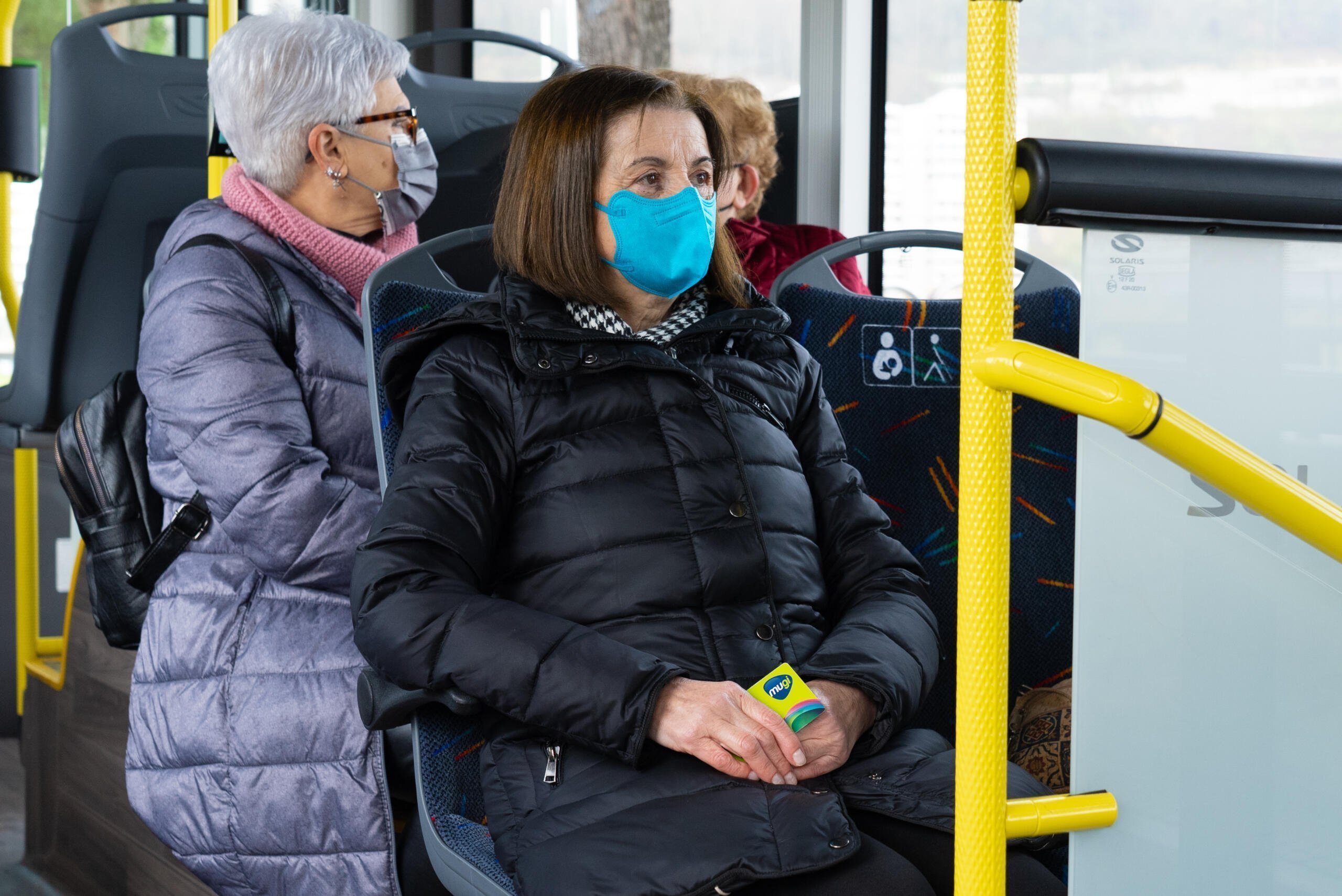
The MUGI card offers reduced fares to specific groups, including seniors. Credit: Mobility Department of the Gipuzkoa Provincial Council
Public transport is an essential human right
The COVID-19 pandemic reaffirmed public transport as an essential human right: Citizens must be able to travel under the same conditions regardless of their place of residence and spending power.
Moreover, it also emphasized the need to upgrade vital parts of a sector needing to meet demands like handless collections of tickets, reliable Wi-Fi services, and automatic passenger-counting systems to manage public transport capacity.
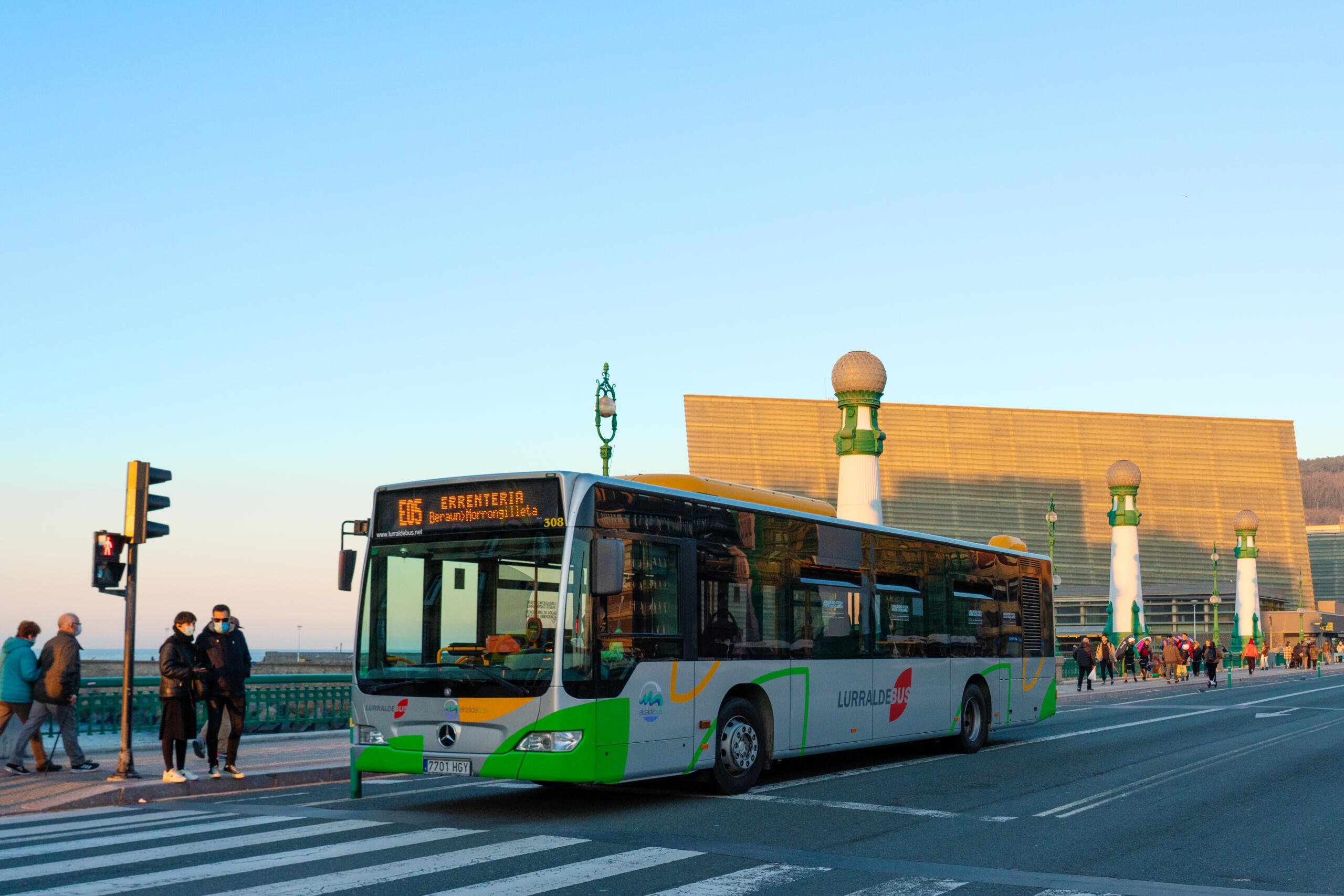
The Lurraldebus is the interurban bus network of the Province of Gipuzkoa.
Credit: Mobility Department of the Gipuzkoa Provincial Council
In Gipuzkoa, we are proud of operating a unique European transport model meeting many of the requests made by our very diverse general public. While sustainability is an important focus, we design and operate a public transport model based, first and foremost, on human rights.
This approach makes our model a European benchmark in terms of interoperability and accessibility, paving the way to a bigger general focus on urban justice.
Conclusion
Transport systems have reached an exciting turnaround point, with new public transport technology introducing an unprecedented change, on which both our Lurraldebus and MUGI have already made a start. The need to focus on smart connected transport has the potential to change the way people live, move, and interact with mass-transit transport systems, and therefore, our societies as a whole.
Click here to read the article in its original format.
About the authors
Rafaela Romero Pozo is deputy for Gipuzkoa and head of Mobility and Urban Planning. Since she was appointed head of mobility in Gipuzkoa in 2019, she has become a strong supporter of Gipuzkoa's public transport card, MUGI.
